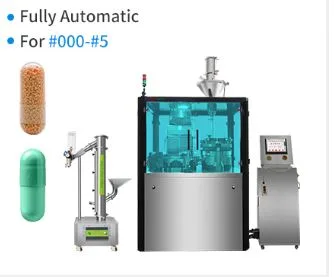ADHD Treatment: Effective Strategies for Managing Attention-Deficit/Hyperactivity Disorder
For individuals and families affected by ADHD, finding the right ADHD treatment can make a life-changing difference. Attention-Deficit/Hyperactivity Disorder impacts millions of children and adults, often disrupting school, work, relationships, and daily responsibilities. While there is no “cure” for ADHD, effective treatments are available that help individuals manage symptoms, improve focus, and build a healthier, more fulfilling life.
Understanding ADHD
ADHD (Attention-Deficit/Hyperactivity Disorder) is a neurodevelopmental condition that typically appears in childhood but can continue into adulthood. It is characterized by patterns of inattention, hyperactivity, and impulsivity that interfere with normal functioning.
Core symptoms of ADHD:
- Inattention: Difficulty focusing, forgetfulness, disorganization, and easily distracted.
- Hyperactivity: Restlessness, excessive movement, and difficulty sitting still.
- Impulsivity: Acting without thinking, interrupting others, or struggling with self-control.
While everyone experiences occasional lapses in focus or impulsive behaviors, ADHD symptoms are more severe, persistent, and disruptive to daily life.
Why ADHD Treatment Matters
Without proper ADHD treatment, individuals may face ongoing challenges, including:
- Poor academic or work performance
- Strained relationships with family, peers, or coworkers
- Low self-esteem and frustration
- Increased risk of anxiety, depression, or substance use disorders
- Difficulty achieving long-term goals
Early and consistent treatment can help individuals build structure, regulate emotions, and unlock their full potential.
Types of ADHD Treatment
Effective ADHD treatment typically involves a multimodal approach, meaning a combination of therapies tailored to the individual’s needs.
1. Medication Management
Stimulant medications are the most common and effective treatment for ADHD. These medications help increase dopamine and norepinephrine in the brain, improving focus and reducing hyperactivity.
- Stimulants: Methylphenidate (Ritalin, Concerta), Amphetamines (Adderall, Vyvanse)
- Non-stimulants: Atomoxetine (Strattera), Guanfacine, Clonidine
Medication can dramatically reduce symptoms, but it is most effective when combined with behavioral and lifestyle strategies.
2. Behavioral Therapy
Behavioral therapy teaches skills to manage ADHD symptoms and reduce disruptive behaviors.
- For children: Parents and teachers learn strategies to reinforce positive behaviors, set clear expectations, and use consistent routines.
- For adults: Therapy focuses on organization skills, time management, and coping strategies for work and relationships.
Cognitive-Behavioral Therapy (CBT) is particularly effective in helping individuals recognize negative thought patterns and replace them with healthier behaviors.
3. Psychoeducation and Skills Training
Understanding ADHD is key to managing it. Psychoeducation provides individuals and families with information about the condition, treatment options, and coping strategies. Skills training may include:
- Organizational coaching
- Time management skills
- Social skills development
- Problem-solving techniques
These practical skills help individuals function better at school, work, and home.
4. Lifestyle Modifications
Lifestyle changes can significantly support ADHD treatment:
- Healthy sleep: Regular sleep schedules reduce fatigue and improve concentration.
- Balanced nutrition: Diets rich in protein, whole grains, fruits, and vegetables stabilize energy levels.
- Exercise: Physical activity boosts dopamine and serotonin, improving mood and focus.
- Screen-time management: Reducing digital distractions enhances productivity.
Simple daily adjustments create structure and reduce the impact of ADHD symptoms.
5. Family and School Involvement
ADHD treatment is most successful when families, educators, and employers are involved. For children, schools can provide accommodations through IEP (Individualized Education Program) or 504 plans, such as:
- Extra time on tests
- Quiet spaces for studying
- Organizational support
For adults, workplace accommodations may include flexible scheduling or task management tools. Family therapy and support groups also help loved ones understand and support the individual’s treatment journey.
ADHD Treatment for Children
In children, ADHD symptoms often appear in the classroom. Teachers may notice restlessness, unfinished assignments, or difficulty following instructions. Early treatment is essential to prevent academic struggles and emotional distress.
A combination of behavioral interventions at home and school, along with medication when necessary, gives children the best chance at success. Parents are encouraged to create structured routines, offer positive reinforcement, and maintain open communication with teachers.
ADHD Treatment for Adults
Although ADHD is often diagnosed in childhood, many adults discover their condition later in life. Adult ADHD can interfere with careers, relationships, and responsibilities. Treatment focuses on practical strategies:
- Cognitive-behavioral therapy to address procrastination and disorganization
- Coaching for goal setting, accountability, and time management
- Medication to regulate attention and focus
- Mindfulness techniques to improve self-awareness
Adults often find significant relief when they finally receive an accurate diagnosis and personalized treatment.
The Role of Support Systems
Support systems are critical to ADHD treatment. Family, friends, teachers, and employers can provide encouragement and accountability. Support groups, whether in-person or online, connect individuals with others who understand the challenges of ADHD.
Community support reduces isolation, strengthens coping strategies, and reinforces positive behavior change.
Holistic and Alternative ADHD Treatments
In addition to standard medical and behavioral approaches, some individuals explore holistic methods to complement ADHD treatment. These include:
- Mindfulness meditation – Improves attention and emotional regulation
- Yoga and exercise – Promotes relaxation and concentration
- Nutritional supplements – Omega-3 fatty acids, zinc, and magnesium may support brain health
- Neurofeedback – A brain-training technique that aims to improve self-regulation
While research on alternative therapies is ongoing, many people find these methods useful when combined with traditional treatments.
Long-Term Management of ADHD
ADHD is a lifelong condition, but symptoms can be managed successfully. Long-term treatment often involves:
- Regular check-ins with healthcare providers
- Adjusting medications as needed
- Continuous therapy and skills training
- Building healthy routines and habits
- Staying connected with support systems
Consistency is key. Over time, individuals learn to work with their unique strengths while minimizing the challenges of ADHD.
Breaking the Stigma Around ADHD
One of the biggest barriers to treatment is stigma. Misunderstandings about ADHD can prevent individuals from seeking help or cause feelings of shame. Common myths include:
- “ADHD is just laziness.”
- “Kids with ADHD will grow out of it.”
- “ADHD is caused by bad parenting.”
In reality, ADHD is a recognized medical condition with biological roots. Raising awareness and normalizing treatment empowers individuals to embrace support without fear of judgment.
The Future of ADHD Treatment
Research into ADHD continues to grow, offering new possibilities for treatment. Advances in brain imaging, digital therapeutics, and personalized medicine are expanding options for patients. Mobile apps, online therapy platforms, and telehealth also make ADHD treatment more accessible than ever.
The future points toward more individualized care, where treatments are tailored not only to symptoms but also to each person’s lifestyle and strengths.
Final Thoughts
ADHD may present lifelong challenges, but with the right ADHD treatment, individuals can thrive academically, professionally, and personally. From medication and therapy to lifestyle changes and holistic practices, treatment is most effective when tailored to the unique needs of each person.
With awareness, support, and access to comprehensive care, ADHD does not have to define anyone’s future—it can be managed successfully, opening the door to greater confidence, stability, and success.






